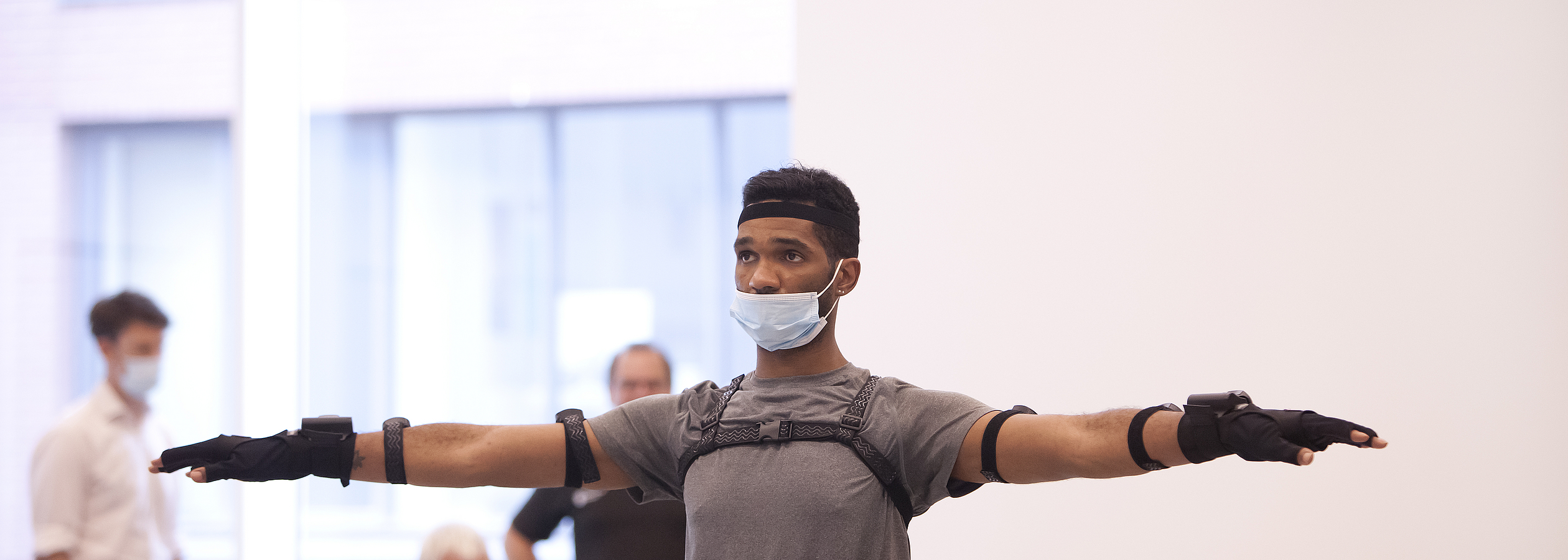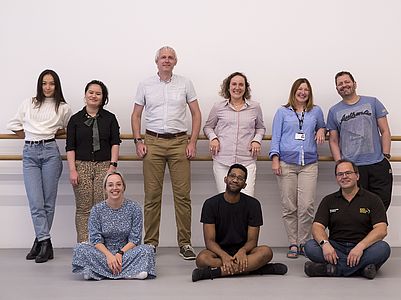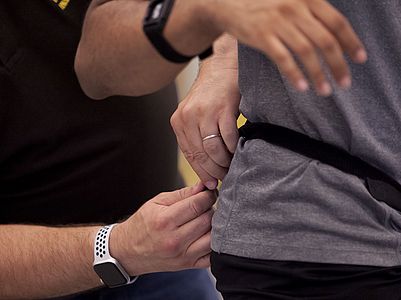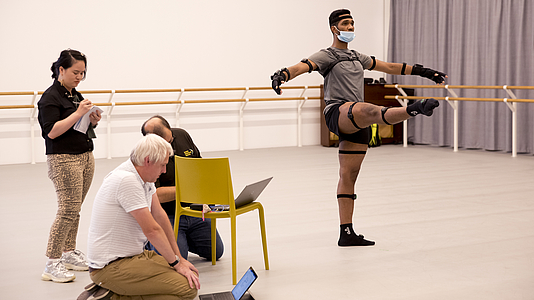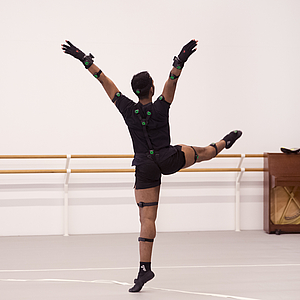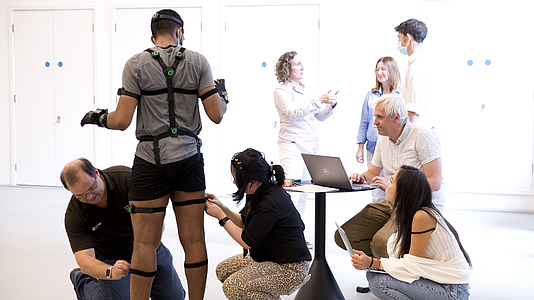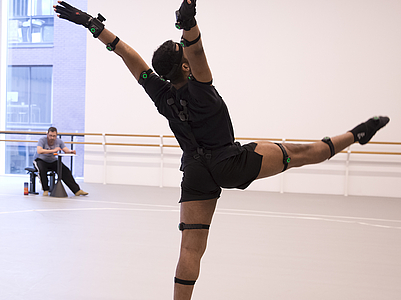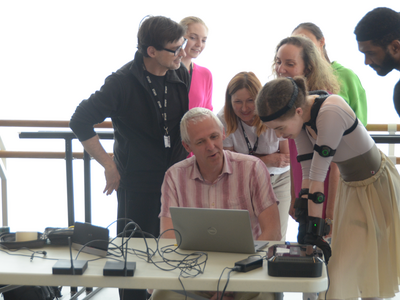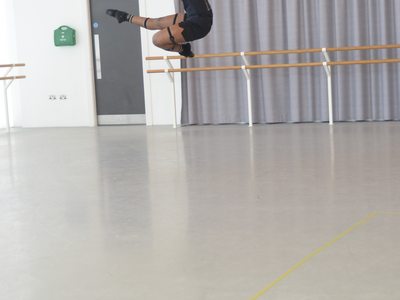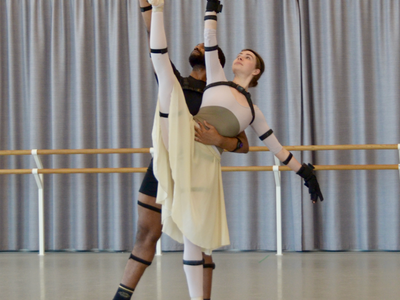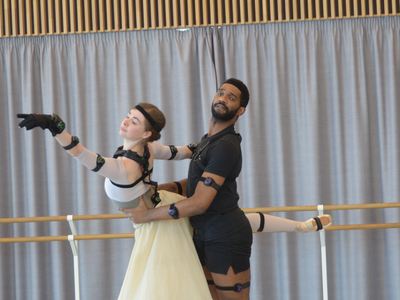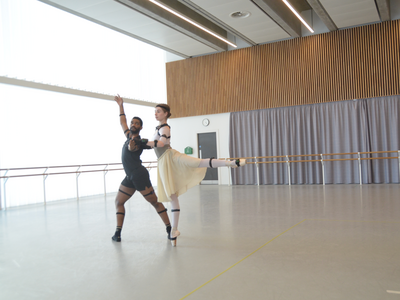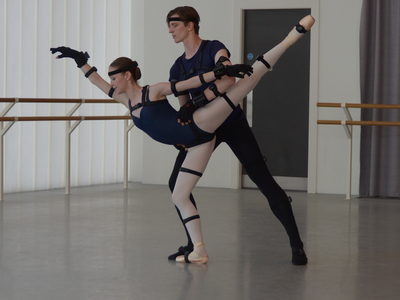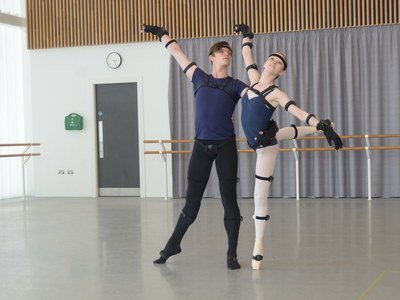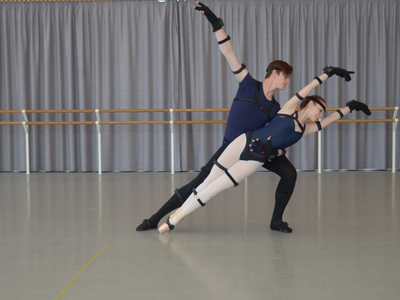Kinesemiotic Body
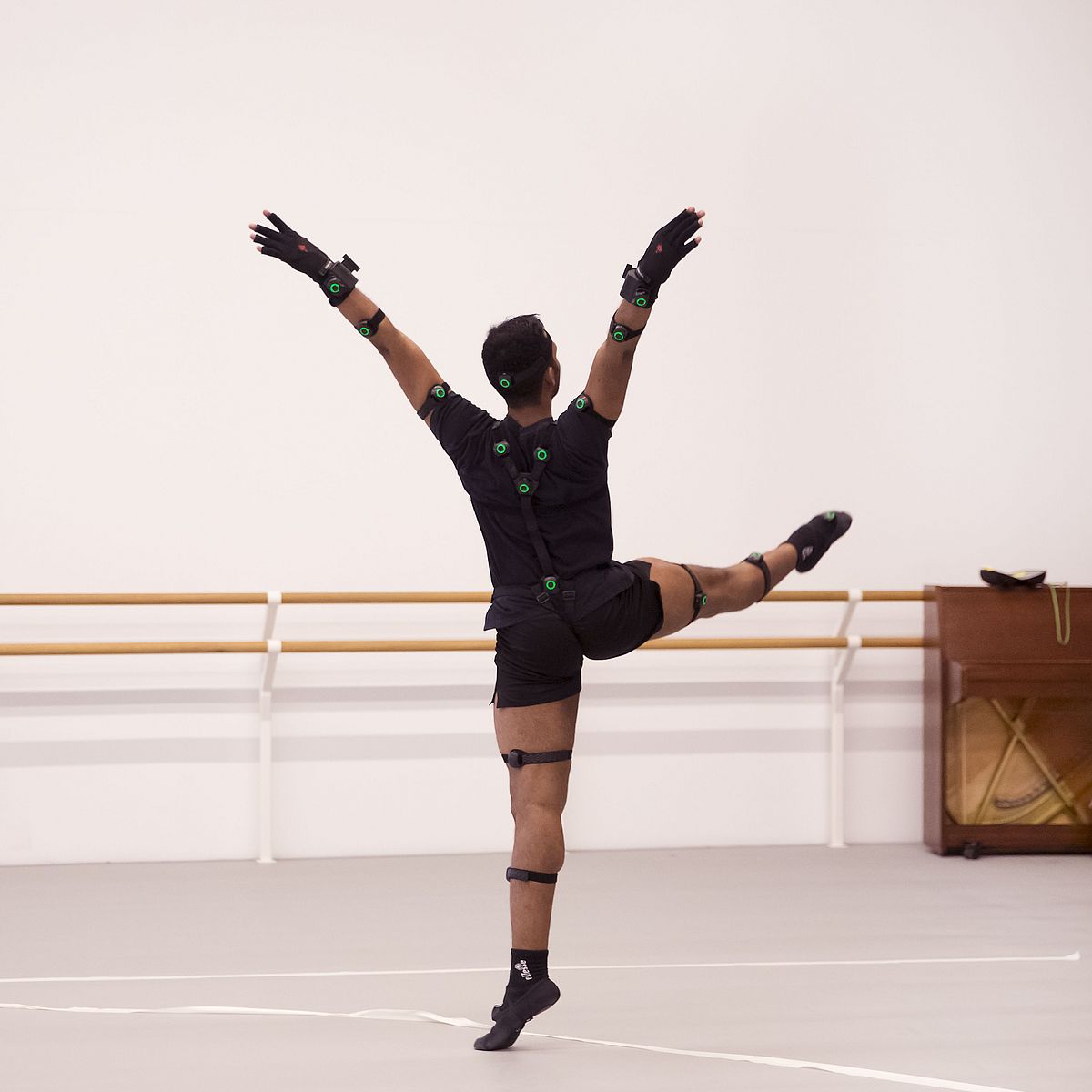
Project Summary
The Kinesemiotic Body is a joint research project funded by Deutsche Forschungsgemeinschaft (DFG) and Arts & Humanities Research Council (AHRC) in cooperation with the English National Ballet (ENB). The project brings together an interdisciplinary group of researchers with the aim of evaluating whether a description of dance discourse informed by multimodal discourse analysis and visualised through enriched videos can capture the way dance communicates through a flow of choreographed sequences in space, and whether this description can support the interpretative process of nonexpert audiences. The theoretical framework of the research project is based on an extended dynamic theory called segmented discourse representation theory (SDRT) and on the Functional Grammar of Dance Movement created by Project Investigator Maiorani. Project's long-term goal is to develop an interdisciplinary area of research focusing on movement-based communication that can extend beyond the study of dance to other movement-based forms of communication and performance and foster the creation of partnerships between the academia and the institutions that host and promote such disciplines.
BBC Interview: Ballerinas in Sensor Suits
Loughborough University
Bremen University
Talks and Conferences
Related Publications
Gallery
Data
Data collected at different stages of the project can be accessed here


